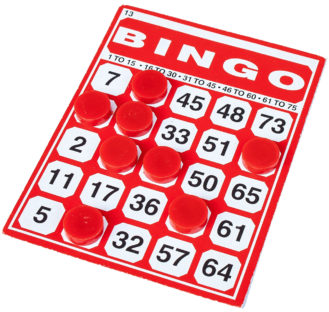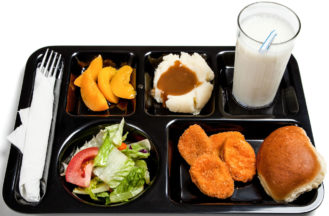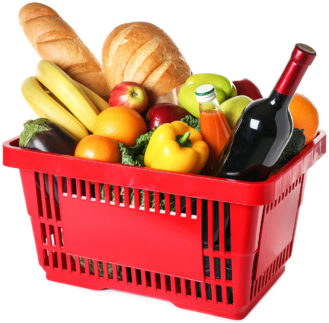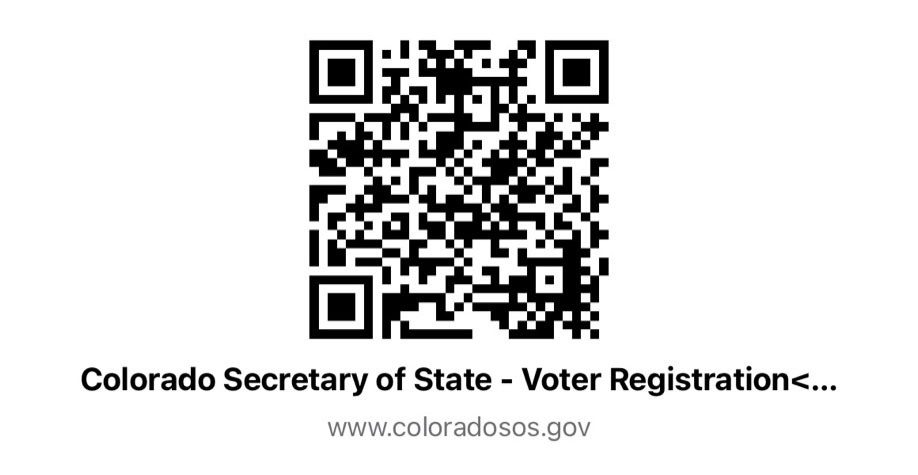
The ballot measures for this election cycle will allow voters to decide several liquor issues, including whether stores can deliver, whether owners can get more licenses, and whether grocery stores can start selling wine. Other measures involve psychedelic mushrooms, affordable housing, school lunches, and tax rates.
This explanation of the 2022 ballot measures is provided by public policy analyst Todd Engdahl. His company, Capitol Editorial Services, provides clients with research, reports, and news on the state budget and other issues at the Colorado legislature. He’s a former executive city editor of The Denver Post, launched DenverPost.com, and was a co-founder of the website Education News Colorado.
How do you feel about being able to buy wine in grocery stores?
Should taxpayers help pay for free school meals for all kids?
Is it time to legalize psychedelic mushrooms?
Do you support a tax increase if the money would increase open hours at your branch library—and would you back new city fees to encourage recycling and to repair sidewalks?
You and other Denver voters have the chance to decide on those issues and a dozen other ballot questions in the November 8 election.
Of those 18 ballot measures, 11 involve changes to the Colorado Constitution or state laws, and seven apply only to Denver.
Three proposals of note won’t be up to the voters this year. Supporters of a proposed statewide abortion ban weren’t able to collect sufficient petition signatures. The same problem stopped a proposal to increase school funding using some excess revenue that’s currently refunded to taxpayers. And in Denver a proposed marijuana tax increase to fund after-school programs was withdrawn by supporters.
In 2021 there were three statewide measures and 13 in Denver. The 2020 election saw 11 statewide measures and 13 in Denver, including two proposed by the Denver Public Schools.
Before we get to the summaries of the proposals, here’s a little refresher on the different kinds of ballot measures.
Statewide amendments and propositions – Constitutional changes are called amendments; changes to state law are propositions. Amendments require approval by 55 percent of voters, but a proposition passes with a simple majority. Amendments and propositions that are put on the ballot by citizen petitions are assigned numbers; measures proposed by the legislature are assigned letters.
Denver lingo – City residents regularly consider changes to the city charter (kind of Denver’s constitution), city ordinances (the city equivalent of state laws), and proposed tax increases. A measure proposed by the City Council is a “Referred Question” and a measure proposed by citizen petition is an “Initiated Ordinance.”
(The summaries include campaign or supporting committee names and information about organized support and opposition if available. Information about fundraising is based on committee disclosures as of mid-September.)
Amendment D – New judges for the 23rd Judicial District
If this largely technical constitutional amendment passes, the governor can assign some judges from the current 18th Judicial District (Arapahoe, Douglas, Elbert, and Lincoln counties) to the new 23rd District, which was created to contain Douglas, Elbert, and Lincoln because of population growth in the southern suburbs. Reassigned judges would have to live in the new district.
Amendment E – Property tax exemption for Gold Star spouses
Disabled veterans and senior citizens who have lived in their own homes for at least 10 years can claim an exemption that reduces their homes’ value for property tax purposes. Under this amendment, spouses of armed forces members who died in the line of duty and spouses of veterans who died from service-related injuries or diseases could claim the exemption.
The state reimburses counties for tax revenues lost because of what’s called the homestead exemption. The state reimburses counties, and it’s estimated passage of this amendment would cost the state $525,000 in the first year.
The program originally covered only senior citizens, but voters extended it to disabled veterans in 2016.
Amendment F – Charitable gambling requirements
 This proposal is intended to makes things easier for charitable organizations that raise or would like to raise money from bingo, raffles, and pull-tabs. If passed, the amendment would repeal the longstanding ban on paying game managers and operators.
This proposal is intended to makes things easier for charitable organizations that raise or would like to raise money from bingo, raffles, and pull-tabs. If passed, the amendment would repeal the longstanding ban on paying game managers and operators.
Payment would be limited to the minimum wage until after July 1, 2024.
Charitable groups say it’s become increasingly hard to find volunteers to run games. The amendment also would reduce from five to three years the waiting period for new non-profits to apply for gaming licenses. The amendment would allow the legislature to change that waiting period without voter ratification starting in 2025.
Charitable organizations raised an estimated $24 million in net profits from such games in 2021. Legislative fiscal experts predict that the passage would cost the state $420,109 in implementation costs in 2023-24.
The amendment is backed by the Colorado Charitable Bingo Association.
Proposition FF – Healthy school meals
Campaign name – Healthy School Meals for All Colorado Students
 The measure would reduce the amount of income tax deductions that could be claimed by taxpayers who earn more than $300,000 a year. Doing that would raise an estimated $100.7 million that would be used by the state to reimburse school districts for providing free meals to all students regardless of income.
The measure would reduce the amount of income tax deductions that could be claimed by taxpayers who earn more than $300,000 a year. Doing that would raise an estimated $100.7 million that would be used by the state to reimburse school districts for providing free meals to all students regardless of income.
Districts could also use the funding to purchase Colorado food products, increase compensation for food service workers, support district advisory committees on healthy school meals, and create a state program to promote Colorado food products and healthy meals.
Education advocacy groups have campaigned for years to bypass the current paperwork-heavy, family income-based system of free meals and instead provide free meals to all students. Federal pandemic relief funding expanded coverage of school meal costs, but that funding was temporary.
Expect to see mailers and advertising in favor of this measure, which is being strongly pushed by the advocacy group Hunger Free Colorado and a long list of other non-profits. More than $750,000 in contributions have been raised.
Proposition GG – Information about proposed tax changes
The 1992 Taxpayer’s Bill of Rights (TABOR) set limits on the annual growth of state and local government spending and required voter approval of tax rate increases. The amendment also sets rather detailed requirements for ballot language of tax proposals presented to voters.
That set off a decades-long chess match between pro- and anti-TABOR interests that has involved lawsuits, court decisions, and various ballot measures. TABOR opponents long have felt the amendment’s current ballot language requirements understate the potential impacts of tax rate changes.
This proposition seeks to create more transparency by requiring that ballot titles and summaries for tax measures provide detailed information on the possible tax changes for people in different income brackets.
A group called Coloradans for Ballot Transparency has raised more than $700,000 for the campaign.
Proposition 121 – Reduction in state income tax rates
On the surface this proposal from conservative groups is pretty simple. It would reduce the state income tax rate from 4.55 percent to 4.4 percent.
Conservative groups long have fretted that
TABOR—hampered in their view by various court rulings and pieces of legislation—hasn’t done enough to restrain government spending. In recent years they’ve proposed a series of ballot measures, mostly unsuccessful, to rein in spending. This is their latest effort.
If passed, there would be no immediate effect on state spending because state revenues are strong enough that they already exceed TABOR spending caps. But in a future economic downturn, if revenues drop below the cap that triggers taxpayer refunds, this reduction could decrease revenues available for spending on education and other state services.
This proposal comes hard on the heels of 2020’s successful Proposition 116, which reduced the tax rate from 4.63 percent to 4.55 percent. Both it and this year’s measures originated with Jon Caldara of the Independence Institute and Republican state Sen. Jerry Sonnenberg.
Scott Wasserman of the Bell Policy Center, a liberal advocacy group, has spoken against the measure. A group called Colorado Character has raised more than $500,000 in support of passage.
Proposition 122 – Legalization of psychedelic mushrooms
 Campaign name – Natural Medicine Health Act
Campaign name – Natural Medicine Health Act
This proposal is pitched as expanding “access to natural medicine.”
Passage of 122 basically would create a legal, regulated way for people to obtain and possess psychedelic mushrooms and some other plant substances. (In 2019 Denver voters approved a back-handed version of legalization when they passed a measure that declared enforcement of mushroom laws the lowest priority for city police and prosecutors.)
Mushroom advocates maintain that such substances have mental health benefits for some users. A group named Natural Medicine Colorado is sponsoring the initiative. The committee reported $2.78 million in contributions, with almost all of that coming from an out-of-state political action committee.
Opposition has been expressed by individual conservative commentators who also retroactively question legalization of marijuana in Colorado, something voters first approved more than two decades ago.
Proposition 123 – Funding for affordable housing programs
Campaign name – Yes on Proposition 123
Along with the school meals proposal, this is a key public policy proposal on this year’s ballot. It seems like almost everybody—homebuyers, renters, policymakers, and people at risk of losing their housing—is fretting about the cost of putting a roof over one’s head.
This proposal would make a small dent in the housing crisis by earmarking one-tenth of 1 percent of income tax collections from individuals, estates, and corporations. It would exempt those revenues from TABOR spending restrictions and dedicate the revenue to state programs that are designed to expand affordability for both renters and home buyers. The goal is to increase the number of affordable housing units by 3 percent a year.
Passage of the measure would raise an estimated $270 million in the first full year of operation and could provide 10,000 units of housing a year.
The measure is backed by a group named Coloradans for Affordable Housing Now and is being pushed by Denver-based Gary Community Ventures. It’s supported by a wide variety of other groups, including Realtors. About $4 million has been raised in support.
The conservative group Advance Colorado Action opposes the measure because it would reduce TABOR refunds.
And Then There’s Booze
For decades feuding factions of the liquor industry and lawmakers have been wrestling with issues like liquor store licensing and which kinds of stores can sell which types of booze.
Sales of spirits, wine, and full-strength beer were once the almost exclusive preserve of individually licensed liquor stores. A proposal to allow grocery stores to sell wine was defeated by voters in 1992. (Grocery chains are allowed to sell spirits, wine, and beer at a single location.)
The system began to open up in 2008 with legalization of Sunday liquor sales. Then, in 2016 a compromise law allowed grocery and convenience stores to sell full-strength beer and gave grocery chains the ability to buy up to four liquor licenses over time.
Three ballot measures backed by national chains and food delivery services would change things more significantly.
Proposition 124 – Multiple liquor licenses
This measure would speed up the process created by the 2016 law and allow single ownership of up to eight licenses by the end of 2016, 13 licenses by the end of 2031, and 20 licenses by the end of 2026. Starting in 2037 a single entity could hold an unlimited number of licenses.
A group named Coloradans for Consumer Choice and Retail Fairness is backing this measure and has raised campaign funds from out-of-state interests and primary contributors associated with the Total Wine chain.
Proposition 125 – Wine sales in grocery stores
This measure is pretty simple but would have the greatest impact on consumers. If it passes, grocery and convenience stores would be able to sell wine under a combined beer-wine license.
Proposition 126 – Alcohol delivery
Under this proposal, third-party companies like DoorDash could deliver liquor to homes, something liquor stores now do with their own employees.
Wine in Grocery Stores, the campaign supporting Propositions 125 and 126, has raised $11.4 million. Top donors include DoorDash, InstaCart, Target, Albertsons Safeway, and Kroger.
A group named Keeping Colorado Local is leading the campaign against all three alcohol initiatives. It has raised less than $500,000.
Referred Question 2I – Additional library funding
Campaign name – Strong Library Strong Denver
The Denver Public Library and its patrons would be the beneficiaries of this plan, which would increase city property taxes by about $36 million in the first year (more in subsequent years), with revenues going to the library, not the city operating fund.
Projected uses for the money include expanding open hours at library branches; buying books and other materials; raising staff pay; increasing access to technology for patrons who lack such access; and expanded services for children and youth, seniors, job seekers, minorities, and other vulnerable groups.
Passage of the proposition is projected to increase annual property taxes on an average home by $50.
Supporters have raised about $170,000.
Referred Question 2J – Continuation of climate action tax
This cleanup proposal would allow the city to collect and retain the full amount of revenue raised by a 2020 sales tax increase of .25 percent, money the city uses for programs related to climate change.
Referred Question 2K – Continuation of homeless programs tax
This similar proposal would allow the city to collect and retain the full amount of revenue raised by a 2020 sales tax increase of .25 percent, revenue that is used for homeless programs.
Referred Question 2L – Reform of election procedures
This technical but complicated measure would update city election procedures by limiting initiative proposals to a single topic and by updating deadlines for candidate nominations. Passage of the measure would also change procedures for title setting of initiatives, referenda, and recalls by allowing public comment on titles and by cleaning up wording in city charter provisions related to ballot questions.
Initiated Ordinance 305
Campaign name – No Eviction Without Representation
This proposal is technically a fee, not a tax, and it wouldn’t hit everyone.
The measure would impose an annual $75 excise tax on landlords for every rental property. There would be exemptions for some owner-occupied properties with renters. The excise tax would raise an estimated $11.9 million for the city in the first year.
That revenue would be used to pay for legal representation of tenants facing eviction proceedings, with small amounts for administrative costs and a tenants’ council to oversee the program.
Supporters have raised about $80,000. There was no organized opposition as of mid-September.
Initiated Ordinance 306 – Mandatory non-residential recycling
Campaign name – Waste No More
Colorado’s relatively low rate of recycling is regularly bemoaned by environmental groups, and this ordinance proposes to do something about it.
The measure would require apartments, condominiums, businesses, and food waste producers to offer recycling services and organic materials diversion to residents, staff, and customers.
This has caused concern within the business community because of the potential costs. Landlords and owners would have to hire commercial recycling services because the city basically only provides trash and recycling pickup to homes.
While homeowners receive city recycling bins without cost, they aren’t required to use them.
Supporters have raised about $54,000 and opponents—a variety of business groups—have raised about $17,500.
Initiated Ordinance 307 – Paying for sidewalk repairs
Campaign name – Denver Deserves Sidewalks
Anybody who walks in Denver probably agrees that a lot of city sidewalks are in terrible shape—cracked, crumbling, and uneven.
Unlike city streets, where the cost of fixing potholes and repaving roads is funded by tax revenues, paying for sidewalk repairs is the responsibility of the owner whose property adjoins the sidewalk.
The trouble is that sidewalk repairs aren’t triggered unless the city receives a complaint and issues a ticket. That doesn’t happen much, so most broken sidewalks don’t get fixed.
In 2017, voters approved $48 million in bonds to pay for new sidewalks on blocks that don’t have them. But it’s expected to take decades of time and millions more dollars to build out the sidewalk network. City Council created a fund in 2018 to compensate property owners for the cost of sidewalk repairs, but that effort has had virtually no impact.
The Denver Streets Partnership advocacy group proposed this ordinance. Instead of requiring random property owners to pay for repairs that get flagged, this proposal would impose an annual fee on all property owners. The revenues would go into a fund to help pay for repairs done by the city.
The annual fees would range from $3.58 per foot of sidewalk on commercial arterial streets to $2.15 a foot on residential collector and local streets.
The ordinance also requires city bureaucrats to create a “sidewalk master plan” that would direct use of the money.
Supporters have raised about $235,000.
Resources
The state ballot measure guide, prepared by professional, non-partisan legislative staff, provides detailed information about each proposal, including pro and con arguments. Ballotpedia articles provide similar material plus campaign finance information. The article is based partly on material from both sources.
- Official state “blue book” explaining the ballot measures (If you’re a registered voter you should have received a paper copy in the mail)—https://leg.colorado.gov/sites/default/files/images/blue_book_2022_english_for_web.pdf
- Analyses of state ballot measures by
Ballotpedia.org—https://ballotpedia.org/Colorado_2022_ballot_measures
Check the Denver Election Division for information on both state and city measures—https://www.denvergov.org/Government/Agencies-Departments-Offices/Agencies-Departments-Offices-Directory/Office-of-the-Clerk-and-Recorder/Elections-Division/voter-information
Stock images from Dreamstime
Need to Register to Vote?
To register online you will need a Colorado driver’s license, Colorado State ID or Social Security Number. Be sure to include your email address for important voting and election updates.
October 31th is the last day to submit an application to register to vote through the mail, a voter registration agency, a local driver’s license examination facility, or online to receive a mail ballot for the 2022 General Election. If you miss this deadline, you can still go to your precinct poll in person on election day to register and to vote.

Scan the QR code or CLICK to download it.


0 Comments